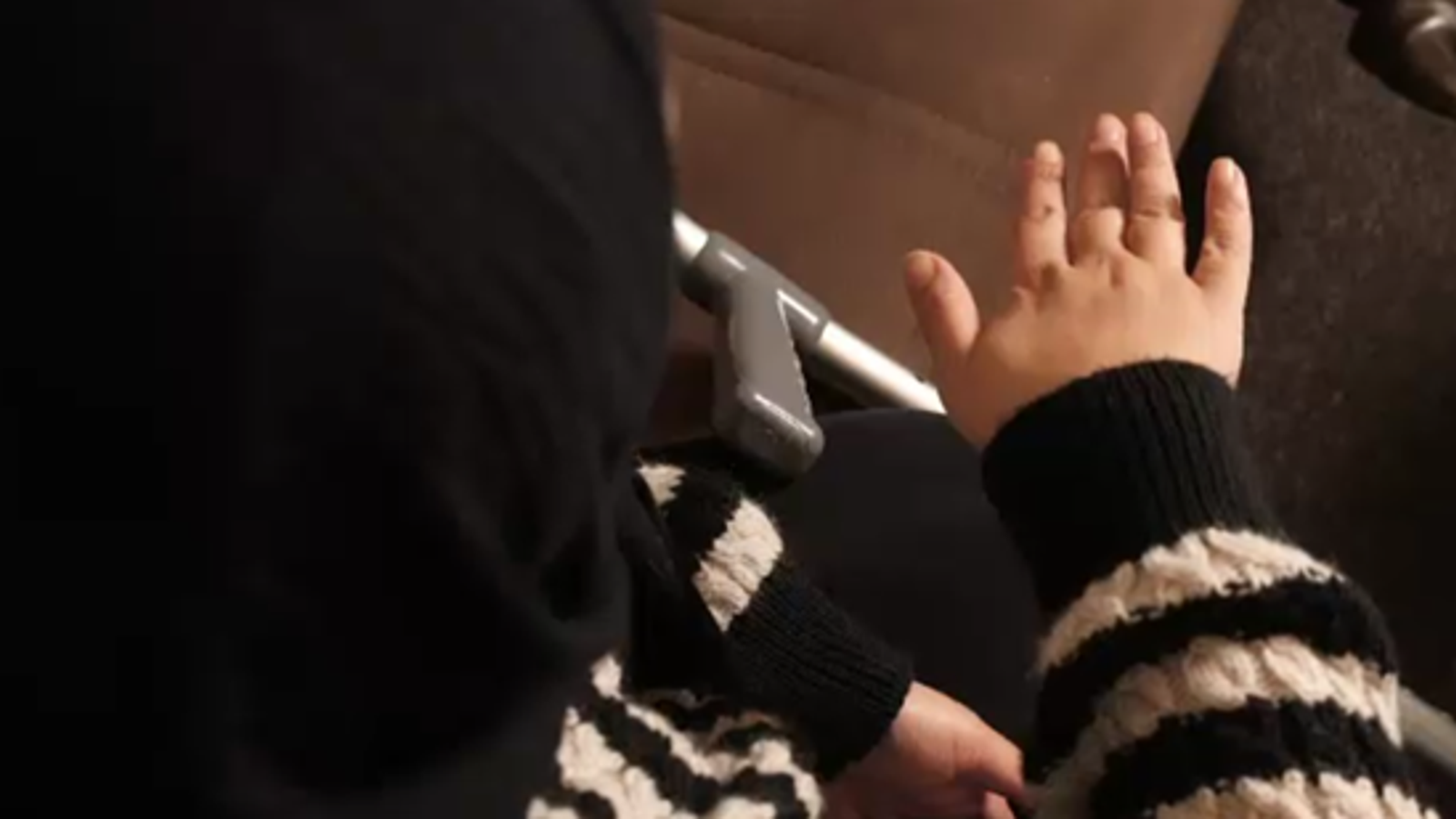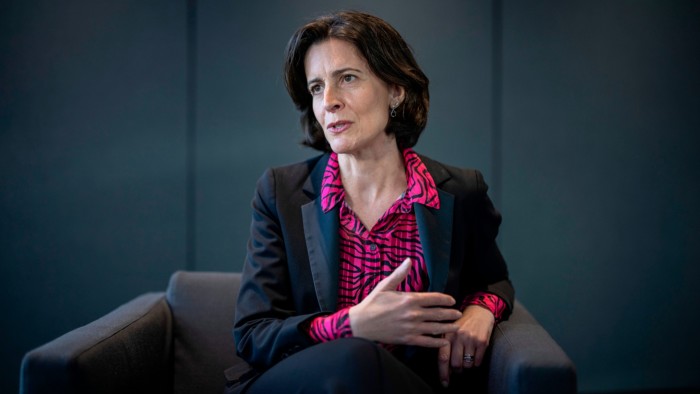“He threw me across the room when I was seven months pregnant. He was tracking my phone. He threatened to send indecent photos of me to my parents.”
Anna (not her real name) suffered years of domestic abuse at the hands of her husband.
One time she even had to jump out of a window to escape his violence.
The couple divorced and Anna continued to live with her parents but, when she refused to remarry, her father became emotionally abusive and kicked her and her two young children out of the house.
Across the UK there is a shortage of refuge spaces and temporary accommodation, which makes it hard for local authorities to house families fleeing domestic abuse, particularly women like Anna who have a disability.
Data obtained by Sky News from Women’s Aid shows less than 1% of refuge vacancies in the UK are suitable for wheelchair users and only 1.8% of vacancies could accommodate a woman with limited mobility.
Anna has mobility issues with her leg and breathing problems, yet the only temporary accommodation provided by her local council is far from her friends, doctor, and children’s school.
“To take my kids to school there’s a half hour walk on my crutch, I have to keep stopping because my breathing gets really bad, and we take four buses,” she said.
“The whole journey takes two-and-a-half hours. I just stay in the area all day; it doesn’t make sense for me to come all the way back. It’s ripping away my independence.”
‘Locked out of safety’
Latest Office for National Statistics (ONS) figures show disabled women are more than twice as likely to experience domestic abuse than non-disabled women.
Their vulnerability makes it easier for a perpetrator to hurt or control them. It can also be harder for victims to leave their homes because most refuge spaces can’t support their physical needs.
Refuge accommodation is often old and with staircases and domestic abuse charities are calling for greater funding for local authorities.
Angie Airlie, chief executive of Stay Safe East, said: “One ask for the Home Office and for other government departments is for them to consider bringing in funding specifically to build disabled friendly temporary accommodation and refuge provision within every borough and every local authority area.
“It shouldn’t be the case that people are locked out of safety because they have a disability”.
Read more:
Cost of leaving abusive relationships to be investigated
How abusers spy on partners with ‘parental control’ apps
A Ministry of Housing, Communities and Local Government spokesperson said: “Every domestic abuse victim should be treated with care, including those with disabilities.
“We expect councils to provide this and we have committed an extra £30m to support survivors in safe accommodation and ensure that those with specific needs are given the right support.”
If you suspect you are being abused and need to speak to someone, there are people who can help you.
The National Domestic Violence Helpline: 0808 2000 247
Women’s Aid
Refuge has resources for people suffering from tech abuse
Respect, the helpline for male domestic abuse victims: 0808 8010327
Galop, the LGBT+ anti-violence charity: 0800 999 5428




























+ There are no comments
Add yours